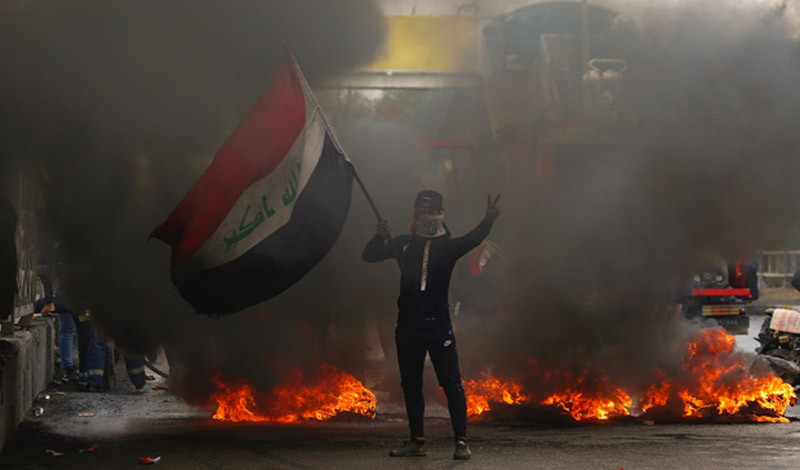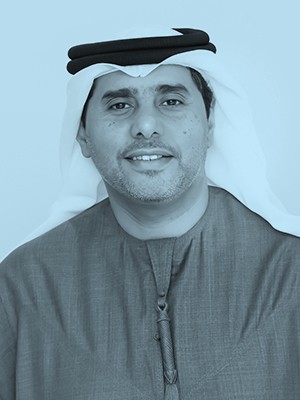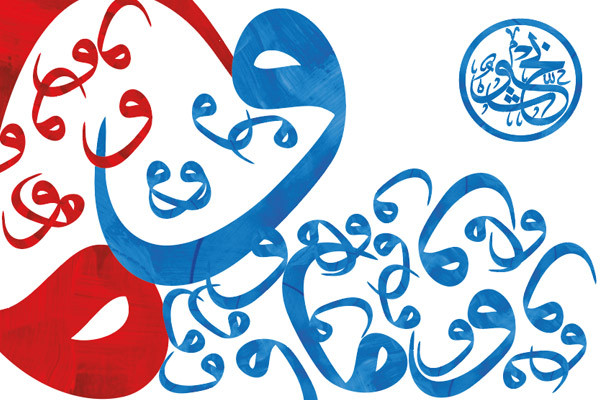Iraq: The Failure of a Government or a Government Form?
Since the Islamic State of Iraq and the Levant (ISIL) has swept Mosul and neared Baghdad the political crisis in Iraq has become a global center of attention. The Al Maliki government has been accused of destabilizing Iraq through a series of sectarian policies. However, the root causes of what is happening, and has been happening, in Iraq goes beyond Al Maliki to the whole idea of political Islam and its use of a theologically swayed electoral majority.

- by Mohammed Abdul Rahman Baharoon ,
- Monday, 30th June, 2014
The sudden rise of ISIL, which some describe as a Trojan horse for old Baathists and others describe as a manifestation of a Sunni Revolt, is a stark reminder of how gripping is the theological divide in Iraq. Internally, the three demographic components of Iraq Shia, Sunni, and Kurd are split far more than they were in 2003. Regionally Iraq is the center of a tug of war for regional influence, or survival depending on how you look at it, between Iran and Saudi Arabia.
However, the sudden rise of ISIL and the quick collapse of the Iraqi army is not solely a result of Al Maliki government failure; that is just the tip of an iceberg. The nine-tenths submerged underwater include the failure of the concept of political Islam.
Al Maliki started his political career as a member of Islamic Dawa Party, a Shia party, and got the Iraqi premiership when the United Iraqi Alliance, composed of Shia Islamic parties, sought a replacement for Ibrahim Al Jaafari, with a little help from the US. Building this Shia identity was essential to consolidate a winning majority. Such a majority could not have been achieved by Al Maliki in a secular Iraq.
The democratic concept of majority coupled with religious demographic dissection of Iraq gave prominence to political Islam that tried to rally further political support based on religious endowment. Al Maliki was clear that he represented the interest of Shia not that of Iraq, and he used political Islam to concentrate power in the hands of one component of community that is discernable only theologically.
Al Maliki has continued to use sectarian allusions and described what is happening in Iraq as a continuation of the ancient confrontation between the followers of Al Hussain and Yazeed. Al Maliki continued to push Sunni leaders out of government from the Governor of the Central Bank to general and middle rank officers in the military up to his Deputy. For other components of the Iraqi society, Iraq was firmly a Shia country.
As we condemn the practices of ISIL, we need to understand that it didnt suddenly mushroom in Iraq. ISILs quick ascent, be it because of regional backing, tribal support, or lack of conviction by army officers, sets in a larger context. Since 2003 and the demographic dissection of Iraq as a Shia majority versus a Sunni and Kurdish (also Sunni) minorities, scores of militant organizations claiming to fight for Sunnis rights in Iraq have emerged: Al Tawhid Islamic Front, Hamas Iraq, Ansar Al Islam, Islamic Army in Iraq, Ansar al Sunnah and Al Sharia, Fatah Al Islam and the list of Sunni branded groups goes on.
The reason such groups kept emerging is not different from the reason ISIL was seen by many Iraqi tribes as a Sunni Revolt rather than an extremist group: the sectarian polarization that the US brokered in Iraq. ISIL and whatever is going to come after it will continue to be spawned as long as Iraqis see themselves as competing majorities and minorities based on religious affiliation. Sectarian differences in Iraq are part of its history, mainly as a cultural idiosyncrasy; now sectarianism has become an issue of survival.
At the heart of the mutation of sectarianism is Political Islam. Islamic political parties, both Shia and Sunni, were a natural result of the combination of demographically dividing the community and applying the concept of electoral majorities. Al Maliki couldnt have created a political constituency that would give him a majority without resorting to sectarian division of the community. To create a Shia electoral majority Shia identity needed to become a matter of voters self-preservation. Sectarian struggle is the one chromosome that all political Islam groups, Sunni or Shia, share.
The failure in Iraq is not that of a specific government; it is at heart the failure of a government form that is based on creating an electoral majority in a region where political identities are not intellectual but theological. Majority in Iraq, because it is demographic in nature, not political, has become a zero sum game. Sectarian identities, a history of marginalization coupled with a divine right of theological endowment, leave no way to have a peaceful transfer of power. What failed in Iraq is the grand proposition that western democracy can successfully be replicated in Iraq, because it worked elsewhere.
What Iraq needs today, is not a new prime minister; it needs to rediscover its Iraqi identity with a national aspiration and a form of government that is not based on demographic division.
The ISIL attack could possibly be a point that can bring Iraqi people to work together on rebuilding and maintaining Iraqs unity. The theological division that the Sunni-Shia demographic labelling created is a starting point. The discussion on Al Malikis performance provides an opportunity to start a national dialogue on mistakes of the past and opportunity missed. This revision should reconsider all religious political institutions; such division based on interpretation of religion shouldnt be allowed to continue.
Iraqi people also need a sense of purpose, a common goal which can take the form of a strategic plan, a space program or a grand dream of being the food bank of the region. Iraq also needs partners regional and international who believe in the value of a unified Iraq. Along the way, Iraq needs to find for itself a government form that best allows its people to become equal partners in the responsibility of achieving that dream.

Mohammed Abdul Rahman Baharoon
Director General
Read More
Areas of Expertise
- Geo-strategy
- Reputation and soft power
- Public Policy and International Relations
Education
- Master’s degree in English Literature from Texas Tech University in 1995
- English Major from Kuwait University in 1987
Bio
He perused a career in media as a reporter for “Al Arabi” Magazine, Al Ittihad newspaper, and then Editor for Gulf Defense Magazine before starting as director of research at both and focusing on the interplay between Geostrategy and policymaking in governance, stability, capacity building, and future-proofing.
Mohammed has also worked as Deputy Director of Watani (UAE’s first initiative on National Identity) and is also a founding member of the board of “Bussola Institute” a think tank in Brussels that focuses on the changing and emerging aspects of the partnership between the EU and the GCC member states.
As part of his interest in the emerging geostrategic space of the Arabian Peninsula, Mohammed looks at Iran as part of the development of the area as a major trade artery. This development implies developing a sustainable relationship with its regional neighborhood on the Arabian Gulf, The Arabian Sea, the Red Sea, or the Mediterranean. Iran is a major component of that space and becoming more adaptable to the modernization process will allow it to become part of the future development of the region.

